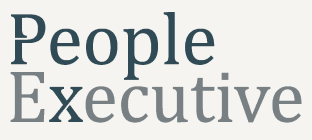In our previous series of blog posts, we have delved into the boardroom, its composition and role, and not least, what characterizes the modern board profile as of 2024. In this blog, we will unfold the concept of 'Board Search' further and specify some of the key trends surrounding board appointments, and what the crucial business-critical yields can be from engaging with 'Board Search' as a strategic discipline.

Board Search should be regarded as a discipline, just as Executive Search has been for decades
For decades, both private and public companies have naturally engaged in the recruitment and hiring of top executives, managers, and management teams. It has been a recognized practice to increasingly use the expertise and tools of professional recruitment companies for these purposes.
The approach to boardroom appointments, however, has often been different. Traditionally, it has been driven by a focus on networks and networking. In many cases, there's also been a perception that contributions in the boardroom were proportional to one's management experience and experience from other boards.
There's nothing inherently wrong with this approach. However, we see a potential risk in this conservatism - a risk that the boardroom becomes too much like 'Tordenskjold's soldiers'. Adding to this, the fact that the world around us has significantly changed in character and conditions over just the past five years, the potential risks become even greater. What is really the most important task of the modern board? We would describe it as follows:
To ensure effective strategic leadership and oversight of the company involves defining clear, overarching strategic goals. This includes evaluating and appointing the right management, who, along with the board, can optimally handle risks. The purpose is to ensure sustainability and maintain a strong corporate governance structure. This structure should be based on competencies that reflect social development, market conditions, and relevant trends in technology usage. This should continually support the company's adaptability, success, and value creation.
Following this logic, the composition of the board's profiles and competencies becomes crucial in supporting the modern company and the conditions under which it operates. These conditions are significantly more dynamic than ever before. Therefore, the composition of the board should also reflect the modern competencies that are in demand for effective corporate management. These competencies are also considered criteria for the companies' executive boards and management teams. This places demands on board appointments and the process for them.
Key Elements in Board Search
Our stance is that appointments to the boardroom should be aligned with Executive Search, with a few variations, to address a potential business-critical discrepancy between top management and the board. Thus, we advocate for a greater focus on the discipline of Board Search and the craftsmanship surrounding the process, to support the success and development of our companies in a world characterized by uncertainty and the need for agility.
In our previous blog in the series about the boardroom, we presented our views on the characteristics that define the modern board profile as of 2024. In the following, we will highlight some important characteristics of a successful board search process:
Clearly defined criteria: A successful process starts with clearly defined criteria for the desired board members. This involves identifying the specific competencies, experiences, and perspectives that will strengthen the board and meet the company's needs.
Strategic planning: A successful board search process involves a strategic approach, where the recruitment team works closely with the company's management to understand the company's current and future challenges. This ensures that board members are able to address the company's strategic goals.
Diversity and inclusion: A successful board is diverse and inclusive. The board search process should make a conscious effort to identify candidates with different professional backgrounds, genders, ethnicities, and levels of experience, contributing to better decision-making and innovation.
Transparency and communication: Open communication and transparency throughout the process are crucial. This includes keeping the company's management informed of progress and ensuring that candidates are clear on expectations and the company's goals.
In-depth evaluation of candidates: Candidates should undergo comprehensive evaluation to ensure that they not only meet the formal qualifications but also possess the personal skills and values that match the company's culture and goals.
Adaptation to future challenges: A successful board search process takes into account the company's long-term vision and plans. The board should be equipped to handle not only current challenges but also future changes and trends.
Continuous follow-up: The process does not end with the appointment of board members. There should be continuous follow-up to assess the board's effectiveness and ability to deliver value to the company over time.
Overall, a successful board search process is a careful and strategically planned effort that considers the company's needs, diversity, management requirements, and long-term goals.
The benefits of an effective Board Search are clear to see
Like an Executive Search process, a Board Search should also be regarded as a distinct discipline and an investment in the long-term success and development of the company. The returns are evident:
Strategic innovation and business success: The board plays a central role in shaping the company's strategy and decision-making processes. By considering Board Search as a new discipline, the need for specialized expertise in identifying candidates who can add strategic value and lead the company in the right direction is acknowledged.
Effective governance: Board governance has become increasingly complex with heightened demands for transparency, compliance, and risk management. A dedicated discipline like Board Search is necessary to navigate through these complexities and ensure that the board can effectively fulfill its oversight and strategic responsibilities with the right competencies.
Ensure proper diversity: Traditionally, boards have been characterized by homogeneity, but this is rapidly changing. There is a growing recognition of the importance of diversity in boards. A specialized discipline like Board Search focuses on identifying and attracting candidates with diverse backgrounds, experiences, and perspectives to create more effective and innovative boards.
Meet changing and modern stakeholder expectations: Stakeholders such as shareholders, customers, and society as a whole are increasingly demanding transparency, accountability, and ethical leadership. More and more companies recognize the importance of sustainability and social responsibility. Board Search can meet these expectations and ensure that the board represents the company's values and responsibilities to society. It can find candidates who not only have a solid business background but also demonstrate engagement in environmental and social issues. This reflects companies' desire to be ethically responsible and positively impact society.
Reflect technological advancements and ensure innovation height: Technological advancements have dramatically changed the business landscape. A specialized discipline like Board Search can identify candidates with the right technological insight and innovation ability to help the company remain competitive and relevant - even in the long run.
Ensure international outlook: Many companies are increasingly operating across borders, and board members must therefore have a global perspective. A discipline like Board Search is crucial for identifying candidates with international experience and cultural understanding, thereby supporting the company's market relevance across borders and its ability to scale.
Agile leadership and adaptability: Rapid changes in technology, market conditions, and society also require boards - like management teams - to be agile and able to adapt quickly. The board search process can identify candidates who have demonstrated the ability to navigate uncertain situations and lead companies through changes successfully.
Winning the battle to attract the modern board profile: The demand for skilled board members is increasing, and the competition to attract the most qualified candidates has intensified. A specialized discipline like Board Search can help navigate this competition and identify the best candidates.
Board Search should not only be seen as a new independent discipline, acknowledging that the composition of the board is crucial for the company's long-term success. It is simply a strategic business lever. The craft of Board Search requires a targeted and specialized approach to identify and attract the right skills and profiles. This should support our companies in 2024 to succeed and become successful in today's complex business world, which demands that increased uncertainty and rapid changes be met with agility and decision-making competence.
As with appointments to executive management and leadership teams, there are thus many potentially positive side effects of choosing to collaborate with professional recruitment agencies or headhunters who have expertise in board recruitment and who know their craft in identifying and attracting qualified candidates. It could potentially be too expensive not to.
We are curious to hear about your experiences with board appointments and, of course, your input to nuance an important debate about this strategic, important, and business-critical discipline: Board Search...
